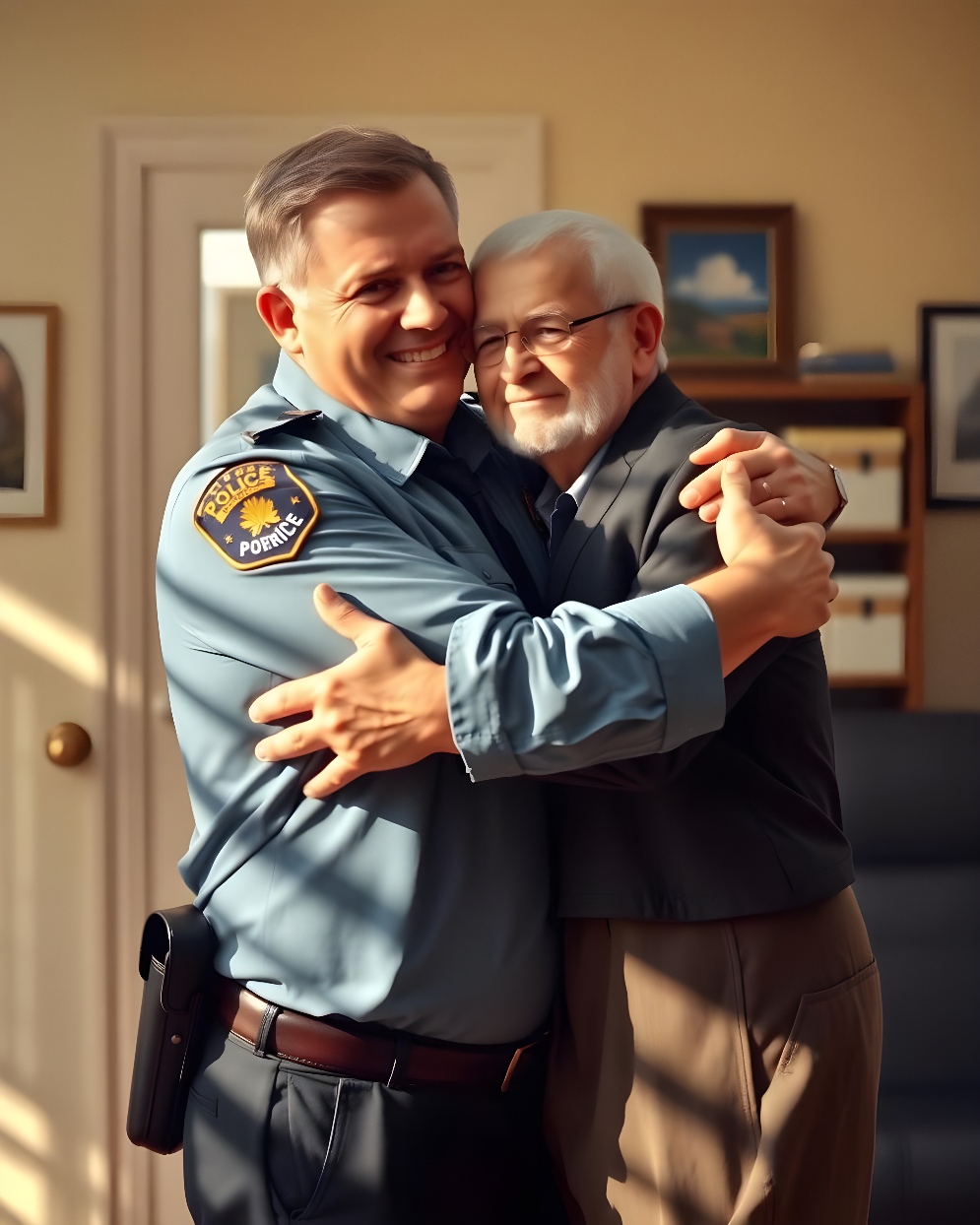The Struggle and Recovery of a Torn Family
“Artyom, please don’t go!” my mother pleaded, her voice trembling with sorrow as tears streamed down her cheeks. “Forgive me… just stay…”
However, my father, with his worn suitcase slung over his shoulder, proceeded toward the exit without looking back.
I stood frozen in the doorway between the kitchen and hallway, feeling like a living barrier. At thirteen years old, I firmly believed that if I simply blocked him, everything would return to how it was before. Weren’t we a united family?
Previously, mom and dad shared laughter so genuine it seemed as if they had one laughter between them. Though dad often worked late and came home exhausted, those few evenings together filled me with joy.
Then, suddenly, as unexpected as thunder on a clear day, betrayal struck. Mom and Kirill from accounting. Persistent arguments, slammed doors, and now him, standing at the threshold.
“Dad… don’t leave,” I whispered softly.
“Step aside,” his voice sounded alien, like the official tone he used only at work.
“What about me?” I forced the words out.
Without a reply, he pushed me aside as if I were invisible and walked out. The door slammed shut — it was over.
Mom collapsed onto the sofa, hiding her face in her hands. I watched her and felt everything within me crumble and fade away.
Only a month passed before Kirill left too. Mom was alone — left with her “faithful dog on a leash,” me.
- I began spending more and more time outside;
- I gravitated toward dangerous circles;
- Took part in thefts, drank, and fought.
Together with my friend Valerka, we were caught trying to break into a garage. The owner called the police.
When my father entered the cell, his footsteps were immediately recognizable. His face was stone-like, his gaze cold and emotionless.
“Let’s go,” he ordered sharply.
“Go to hell,” I spat angrily.
He dragged me into a corridor, pulled me into an empty room, and struck me twice on the cheeks.
“How old are you, Vanya?”
“You know,” I smirked, wiping blood from my lips.
“Because you’re not mine,” he exclaimed. “Your mother was already pregnant when we met. I thought we’d manage it. But she…” he swore and described her behavior.
I was overwhelmed by silence and pain.
“Then, who is my father?”
He threw me some tissues, handed me water, and sank heavily onto a chair.
“Honestly, I don’t know. And maybe it doesn’t matter. On paper, you’re mine. I pay child support. But if you don’t change, I’ll disown you. I’d feel at ease if you ended up in jail. It wouldn’t concern me.”
“And Valerka?”
“He has a father. Let him handle his problems with him.”
I stared at the floor, feeling shame—not for myself, but for everyone around me. For mom, dad, the way we broke apart… and for who I was becoming.
“Recognizing pain instead of hiding from it marks the initial step toward self-acceptance.”
“I was hurting. I didn’t know what to do,” I admitted.
“That’s no excuse. Either you pull yourself together, or you’re ruined in prison. Young age behind bars is hell, Vanya. It’s not where you belong.”
“Okay. I’ll try.”
As I turned to leave, father called after me:
“And remember, your mother isn’t perfect. Both are at fault in the divorce. Forget the harsh words I said about her—that was in the heat of the moment.”
He smiled bitterly:
“No. Some things can’t be fixed anymore.”
I walked away, severing ties with the life I might have led.
Breaking free from this chain of mistakes wasn’t easy. Dad saved Valerka, but he strayed again. I, however, built walls of study and self-discipline around myself. I forgave mom. Late-night tutorials and exams followed one after another.
- Applied to several police academies;
- Faced protests from my mother, who thought it was torture;
- Kept a diary filled with memories that motivated me.
I saw my father, understood his weariness, yet sought to prove I changed—I had not lost myself.
When I received lieutenant’s insignia, I visited him without warning.
He was still the department head, streaks of gray in his hair, but his eyes were the same.
“Greetings, Lieutenant Morozov,” he said.
He froze.
“Vanya?..”
We talked all evening—about duty, life, even hockey. He offered a drink; I declined. Being near him mattered more, showing I chose a different path.
As I got ready to leave, he asked:
“Stay with us at the department.”
I studied his eyes—both unfamiliar and familiar.
“I’ll stay. There’s still time to leave if I want.”
Now we work together: he’s my boss, and I’m his subordinate.
Most importantly, he became my father again.
“Family wounds leave marks, but the power of forgiveness can heal even the deepest scars.”
This story illustrates how complicated and twisting the road toward understanding and healing can be. Conflicts, infidelity, and mistakes left profound traces. Still, faith, patience, and the will to transform one’s life helped overcome hardships.
It is crucial to remember: even when circumstances shatter a family, a sincere wish to mend things can bring relationships back to life. Forgiveness represents the foundational step in restoring trust and familial bonds, no matter how wounded they are.
